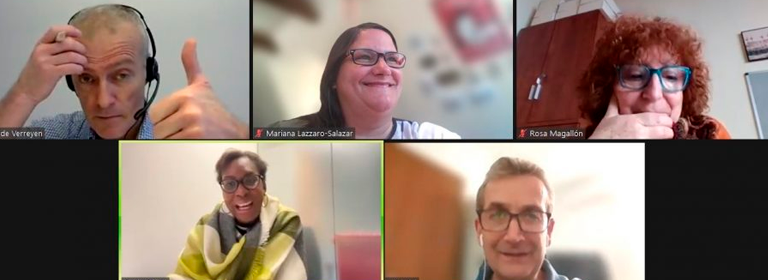Member of the Center for Research in Neuropsychology and Cognitive Neurosciences, CINPSI Neurocog, Universidad Católica del Maule.
PhD. María Teresa Muñoz Quezada
At the global level, over three years, countries developed different strategies to face the ravages that the COVID-19 pandemic was causing in people’s lives. With the guidance of the World Health Organization and various teams of scientists, timely diagnosis and traceability measures, social distancing, cleaning and disinfection, the use of masks, confinements and recently inoculation through vaccines have been the main actions to contain the pandemic. However, beyond maintaining control of the pandemic, there remain several challenges related to the recovery and adaptation of the community and the health system.
The health emergency has highlighted the relevance of strengthening public health institutions to face infectious diseases and implement political actions together with an integral approach to take care of the existing interaction between the pandemic and other chronic conditions.
Currently, our country, similar to other Latin American nations, is facing a challenging epidemiological situation due to the increase in chronic non-communicable diseases, the postponement of treatment during the pandemic, the emergence of other epidemics, the effects caused by the increment in violence in cities and the accelerated advance of the climate crisis, all of which alerts about the need to have consolidated health systems that can act against the inequities that were exacerbated by the pandemic. Governments have planned strategies to put an end to the pandemic, and are preparing for future health emergencies, improving health care guarantees, investing in primary care, and reinforcing collaborative support among states. Among the gaps detected, one area that requires an urgent injection of resources and which had been weakened since before the pandemic is mental health.
Several international studies report some limitations of mental health care programs during quarantine, which restricted community access to specialists in this area.
Moreover, other studies show that intrafamily violence against children, adolescents and women has been increasing and is closely associated with the context of the uncertainty of the pandemic.
The pandemic has exposed and reinforced pre-existing social inequalities in the prevalence of violence against the most vulnerable population. Besides, at the global level, significant deficiencies in the response and prevention of mental health problems have been demonstrated in health systems. For example, telephone connectivity and internet access have been possible for the most part in high-income countries or cities. Therefore, there is a vulnerable population of children, young people, and families who did not receive mental health care via telephone or through virtual telemedicine channels implemented during this period.
Although initiatives were created as part of the government strategies (practical guide on emotional well-being, telephone lines, or telemedicine attention that provided guidance), and also from the universities, with help systems that made it possible to deal with emerging problems and support with the first reception in order to offered counseling and referrals, there were two years in which mental health was lagging behind, with the presence of social problems and the socio-political context, where families were affected by factors such as unemployment, loss of family members, teleworking, the difficulty students had to respond to academic demands at home, among others.
The literature points to greater vulnerability, risk and impact on the mental health of women, and undoubtedly this was aggravated by the pandemic. The global situation indicates that rates of mental disorders are on the rise coexisting in a close relationship with marginalization, impoverishment, domestic violence and abuse, overwork and stress, especially in women’s health.
Based on the above, it is necessary to invest in programs that can manage the increased demand for care for people who have developed mental health disorders in a COVID-19 pandemic situation, in addition, at the same time, prevent the development of future mental health problems in the general population, through campaigns to support people in managing their emotions and adapting to new social and environmental scenarios in the context of a controlled pandemic.
Recognizing these challenges, consolidating the lessons learned, planning strategies to solve them, and creating programs that emerge from the needs of the community with specialized mental health teams, will allow for a more resilient, empowered, and proactive society in the face of future social, health and environmental problems that lie ahead.













